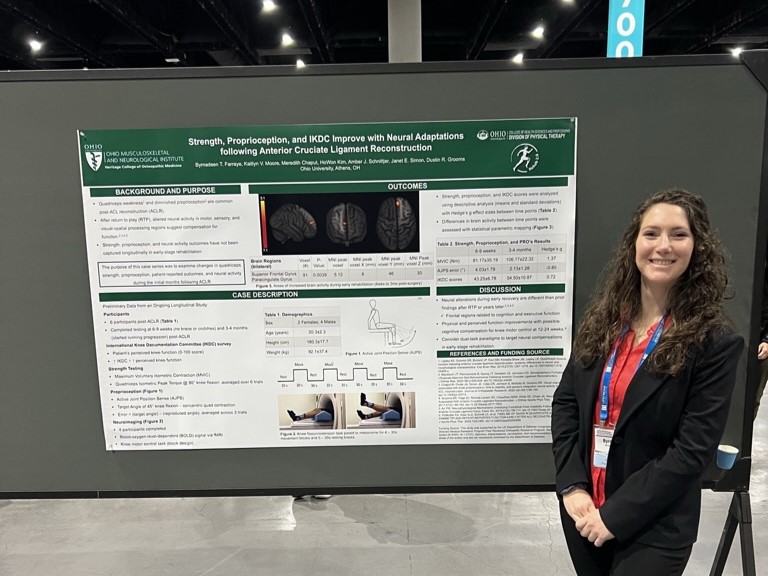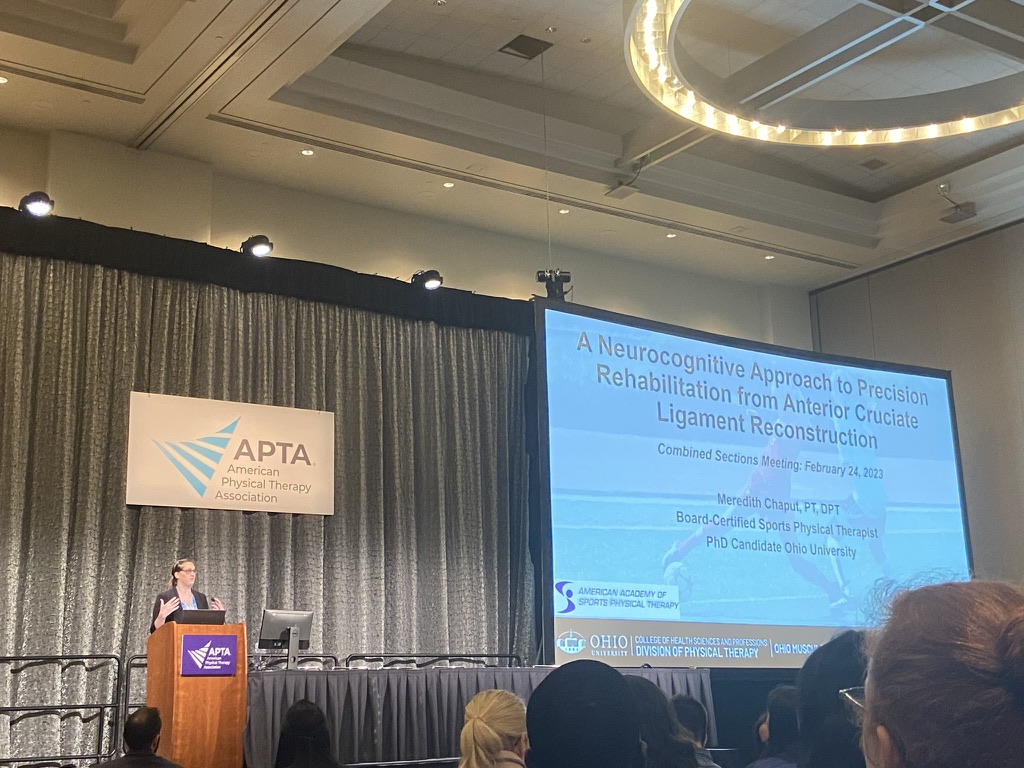Byrnadeen Farraye

At the 2023 APTA Combined Sections Meeting, Byrnadeen presented preliminary findings of a larger longitudinal study that is investigating the clinical and neurological outcomes after anterior cruciate ligament reconstruction (ACLR). The purpose of the preliminary study was to examine changes in quadriceps strength, proprioception, patient reported outcomes, and neural activity during the initial months of ACLR recovery. Functional and neurological changes have been previously reported in literature to be present, however none have looked at the early stages of ACLR rehabilitation.
From 6 weeks to 4 months, individuals with ACLR improved in strength, proprioception, and IKDC scores along with neurological adaptations. Specifically, activation in the superior frontal gyrus and paracingulate gyrus for knee motor control significantly increased over time. While traditional rehabilitation seems to improve clinical outcomes like strength, proprioception, and patient experiences, it may induce neural compensations for knee motor control. Clinicians may consider integrating dual-tasking or cognitive challenges during early rehabilitation to target neural compensations.
Meredith Chaput

